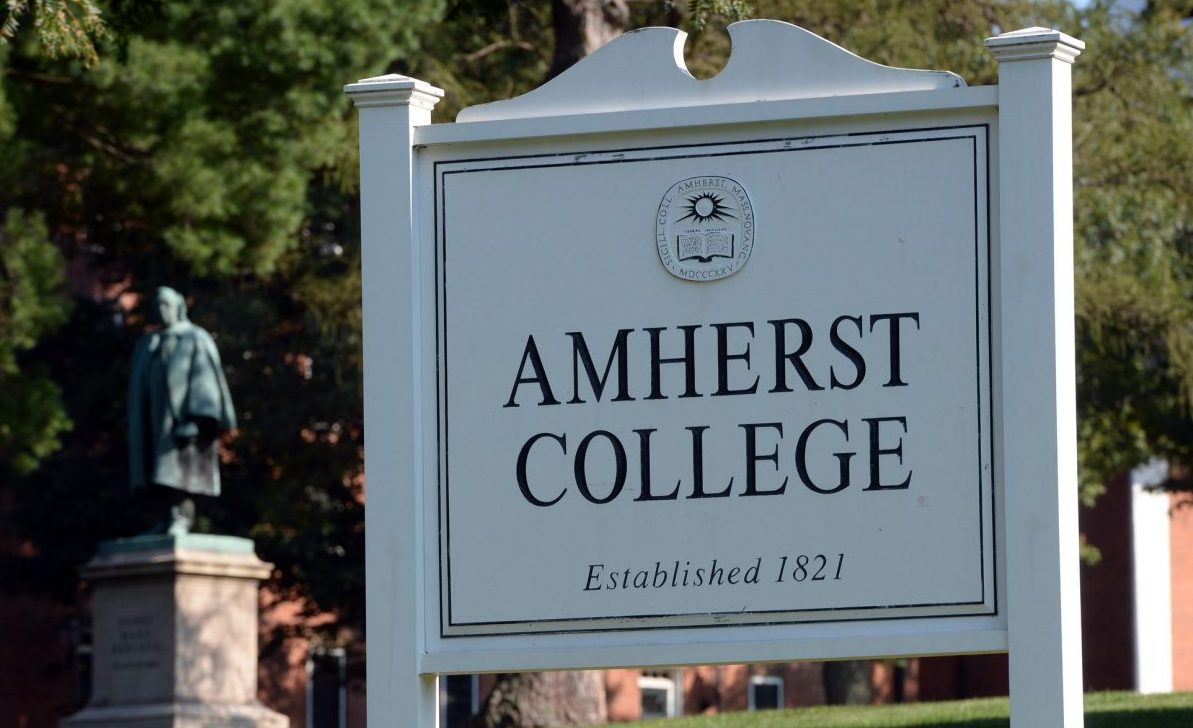
Massachusetts college sued for reportedly paying employees only once a month: ‘Illegal payroll policies… withholding of millions’
A private Bay State college is facing a lawsuit for reportedly paying employees only once a month, according to former workers who claim that the college’s “illegal payroll policies” led to millions of dollars being withheld in recent years.
Ex-employees of Amherst College have filed the suit against the liberal arts school in Hampshire Superior Court, alleging that their former employer violated the Massachusetts Wage Act for the late payment of wages.
Three former workers brought the lawsuit against Amherst College, saying they’re bringing the suit individually and for all other members of the class — which they estimate is hundreds of employees.
The crux of the lawsuit is that Amherst College reportedly pays its exempt workers on the final business day of each month, even though the workers did not elect to be paid monthly, according to the suit.
“Defendant should pay its exempt employees no less frequently than semi-monthly, and within six days of the termination of the pay period in which such wages were earned,” the lawsuit reads. “Defendant’s policy of paying its exempt employees on the last business day of the month results in all wages earned in the first half of the month being paid, at a minimum, approximately 10 days late, in violation of the Wage Act.
“Defendant’s illegal payroll policies resulted in the withholding of millions of dollars in wages over the last three years, causing harm to Plaintiffs,” the lawsuit continues.
An Amherst College spokesperson defended how the school has been paying workers.
“All Amherst College employees have been paid in full and in a manner that is timely, regular, and clearly communicated from the outset of employment,” the college spokesperson said in a statement.
“We are confident that we have complied with the law and expect to vigorously defend the College’s position,” the spokesperson added.
The three plaintiffs who are bringing the lawsuit are: John T. Martin, Danielle Amodeo, and Jessi Fournier.
Martin was the director of Amherst College’s Queer Resource Center and then the interim assistant dean of students for Identity & Cultural Resources, earning an annual salary of $115,000.
Amodeo during her time at Amherst College held the titles of Public Programs and Marketing Coordinator, Public Programs and Marketing Specialist, and most recently was the associate director of Communications and Public Programs for the Mead Art Museum, earning close to $80,000 a year.
Fournier was the associate director of Student Accessibility Services, with an annual salary of $78,000.
When breaking down how much money they earned through the monthly payment schedule, the lawsuit states that Martin (annual salary of $115,000) received $9,583 on the final day of June.
“Defendant should have paid Plaintiff Martin in the gross amount of approximately $4,791.67 no later than June 21, 2023 for the work they performed during the first 15 days of the month,” the lawsuit reads.
Amherst College paid Martin about $80,000 in late wages, according to the suit.
When it comes to Fournier, her previous employer paid her on a bi-weekly basis.
With only getting paid once a month, she had to “re-allocate her monthly bills because she would not have sufficient funds in her account to cover all of her bills when they came due,” the lawsuit reads. “This re-allocation resulted in higher monthly bills for certain accounts.”
Private sector employers in Massachusetts must pay their salaried employees on a bi-weekly or semi-monthly basis unless the employee chooses to be paid on a monthly basis, according to the former workers’ lawyers.
“Only then may a private employer pay on a monthly basis,” attorney Raymond Dinsmore said. “This has been the law in our state for a very long time and it is an easy rule for employers to follow. In fact, virtually every private employer in Massachusetts follows this rule every time they run payroll.
“Amherst College must follow this rule just like every other private employer and must accept the consequences if it is shown that they did not,” the lawyer added.
Related Articles
Massachusetts college leaders urged to protect free speech ahead of Trump: ‘Resist this new McCarthyism’
Berklee cancels ex-transgender student presentation
Harvard University leaders after Oct. 7 Hamas terrorist attack cut ‘violent’ from statement, chose to not acknowledge the Israeli hostages
Simmons University Hillel’s hut for Jewish festival was vandalized: ‘Simmons condemns the antisemitic vandalism’
Massachusetts community college enrollment up 14%, public colleges see first enrollment growth in last decade
Fournier and the attorneys a couple of months ago were in communication with the Massachusetts Attorney General’s Office Fair Labor Division about the late wages.
“This letter is to inform you that we are authorizing you to pursue this matter through a private civil lawsuit,” reads the AG’s Office letter. “If you elect to sue in civil court, you may bring an action on your own or your clients’ behalf, and on behalf of other similarly situated workers. This office will not pursue an investigation or enforcement at this time.”
The lawyers in the lawsuit state that Amherst College should be required to pay the employees “damages in an amount equal to three times their unpaid and/or late paid wages, plus interest, attorneys’ fees, and costs.”
The lawsuit is also seeking a permanent injunction that would ban Amherst College from continuing the monthly pay policy.
Attorney General Andrea Campbell’s office declined to pursue an enforcement action against Amherst college. (Nancy Lane/Boston Herald, File)

